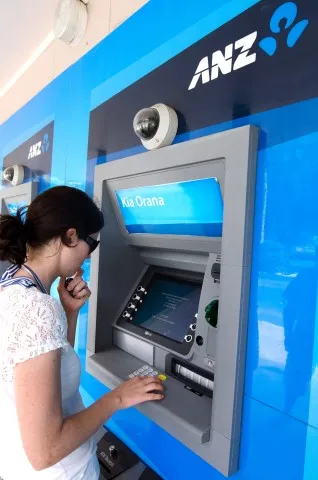
Australian banks' credit costs feared to increase from current low levels
Blame it on the unwinding of the global commodities cycle.
According to Moody's Investors Service, the macroeconomic risks faced by Australian banks is heightened by the unwinding of the global commodities cycle as regions and sectors most exposed to mining are starting to see some signs of stress.
Although the banks' direct exposure to the resources sector is relatively low, they face high second-order risks from a potential sharp downturn. "Reflecting these pressures, we expect Australian banks’ credit costs to increase moderately from current low levels," says Moody's.
Here's more from Moody's:
Risks in Australia’s housing market are skewed to the downside which - given that residential mortgages dominate their loan books - poses a challenge to the banks.
The current low interest rates continue to support housing market stability despite the recent run-up in house prices. However, deepening affordability shortfalls couldlead to an eventual adjustment that would better align house price growth with income growth. Although the likelihood of an outright house price correction remains low, tail risks are rising.
We expect forthcoming APRA discussions on a domestic version of the total loss-absorbing capacity (TLAC) framework will encompass a broader range of bank resolution issues, potentially including senior creditor bail-in, and the introduction of a ‘junior senior’ class of instruments.
The impact of regulatory changes on the banks’ ratingswould depend on the degree to which the positive impact of higher loss-absorption capacity would offset the possible reduction in our assessment of the likelihood of government support for senior obligations.
Australian mortgage insurance companies remain financially sound. From a stress-testing perspective, the companies’ strong capital levels can withstand potential losses arising from a 'normal recession' scenario. However, how their portfolios would perform in more challenging times is untested. A sharp housing correction, while unlikely, could challenge the their credit profiles.




![Lorem Ipsum [ABF 1]](https://cmg-qa.s3.ap-southeast-1.amazonaws.com/s3fs-public/styles/exclusive_featured_article/public/2025-03/a_hand_pointing_to_a_futuristic_technology_5b87c9d0e3_1.png.webp?itok=2w0y1WhS)


![Cross Domain [Manu + SBR + ABF + ABR + FMCG + HBR + ]](https://cmg-qa.s3.ap-southeast-1.amazonaws.com/s3fs-public/styles/exclusive_featured_article/public/2025-01/earth-3537401_1920_4.jpg.webp?itok=WaRpTJwE)







 Advertise
Advertise

